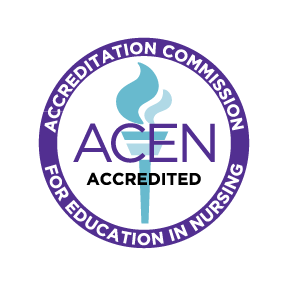Lumberjacks make great nurses
Looking for a rewarding health care career with plenty of job opportunities? Look no further than SFA's BSN degree. Lumberjack nurses are so highly regarded that the majority of our students secure positions before they graduate!
The nursing program at SFA’s DeWitt School of Nursing is an excellent option for students who wish to pursue a bachelor’s degree and go directly into the field of nursing. We review applicants each fall and spring, selecting up to 80 highly qualified students per semester.
Our nursing students complete a rigorous combination of coursework and hands-on training using state-of-the-art equipment that prepares them for successful and challenging careers. You’ll find our graduates working across the state and nation, at both outstanding rural hospitals and in major medical centers.
Hands-on experience. Real-world training.
As an SFA nursing student in the BSN degree program, you’ll have access to learning experiences that take you out of the classroom and into the real world. As a member of the nursing program, you’ll get out into the field and work alongside your professors in hospitals and clinics. Clinical rotations are conducted at local medical facilities where you won’t just watch others work – you’ll join them.
With the support and guidance of your professors, you’ll perform basic medical procedures like inserting IVs and even participate in realistic simulations that encompass simple to complex patients.
Cost of Attendance
Visit SFA's Tuition and Fee Plans and Rate Tables page for current tuition and fees.
Curriculum
Our BSN degree program provides students with the essential knowledge and skills to provide high-quality, safe care to patients of all ages and backgrounds. From the beginning of the program and throughout the curriculum, excellence is a mainstay in the School of Nursing.
Once admitted to the School of Nursing, students will be required to complete 53 hours of nursing education courses, didactic and clinical, to fulfill degree requirements.
Major Academic Planner
The BSN degree Major Academic Planner serves as a guide to keep you on track as you make your way toward earning your degree. Keep in mind that schedules and offerings may change! Always meet with your academic advisor prior to registering for classes.
Lumberjack Nursing Guarantee
The Lumberjack Nursing Guarantee is a program granting certain students guaranteed admission to the DeWitt School of Nursing based on their entry into SFA as a freshman and excellent academic performance. These students will still be required to submit the application, but their acceptance will be assured as long as they meet the following criteria:
- Admitted to SFA as a classified freshman (enter with fewer than 30 semester credit hours).
- Prerequisite GPA and science GPA of 3.0 or higher at time of application.
- Complete all prerequisite sciences (chemistry, anatomy & physiology I & II, microbiology and pathophysiology) in one attempt.
- Maintain a minimum GPA of 2.0 in all academic terms at all institutions attended.
- Complete the ATI TEAS with an overall score of 60% or higher.
Ready to apply?
Admission Requirements - pre-nursing program
SFA’s highly selective nursing program is divided into two components: pre-nursing and nursing. All incoming students are considered pre-nursing students. As a pre-nursing student, you’ll be required to complete all the core coursework and prerequisites needed to apply to the nursing program and you’ll need a minimum prerequisite GPA of 2.5 and a minimum GPA of 2.75 in all science classes. All pre-nursing students interested in applying to the nursing program must take the Test of Essential Academic Skills Admissions Assessment.
Once you complete at least three science courses and are in the last semester of prerequisites, you can apply to the nursing program.
Assigned pass/fail grades for spring or summer 2020?
In accordance with School of Nursing admission requirements, a letter grade of C or higher is required for all prerequisite courses. If you were assigned pass/fail grades for the spring 2020 or summer 2020 semesters, you must provide a detailed explanation of the grading scale for the pass/fail system from the registrar’s office of that institution. A pass grade that includes letter grades below a C will not be accepted for admission into the nursing program. If the institution identified a pass grade as a C or above, all passing grades will be calculated at the value of a C for GPA determination.
BSN Program Prerequisites
| Course and Number | Course Description |
|---|---|
| ANTH 2351; SOCI 1301 or 2319 | Social Science |
| COSC 1301* | Introduction to Computing |
| BIOL 2101** | Anatomy and Physiology I Lab |
| BIOL 2301** | Anatomy and Physiology I |
| BIOL 2002** | Anatomy and Physiology II Lab |
| BIOL 2402** | Anatomy and Physiology II |
| BIOL 3420** | Microbiology |
| BIOL 3020** | Microbiology Lab |
| CHEM 1305** | Introduction to Chemistry I |
| CHEM 1105** | Introduction to Chemistry I Lab |
| BUSI 2304; ENGL 2311; FREN 1311, 1312; GERM 1311 1312; PORT 1311, 1312; or SGNL 1302, 1302 | Component Area* |
| ARTS 1301; DANC 2303; DRAM 1310; MUMH 1307; or MUSI 1306 | Creative Arts |
| ENGL 1301** | Rhetoric and Composition |
| ENGL 1302** | Research and Argument |
| GOVT 2305* | Federal Government |
| GOVT 2306* | Texas Government |
| HDFS 3336; PSYC 2314; or TECA 1354** | Human Development |
| HIST 1301* | United States History I |
| HIST 1302* | United States History II |
| ENGL 2309, 2322, 2323, 2327, 2328, 2309, 2341; HIST 2311, 2312; or PHIL 1301, 2306 | Language, Philosophy and Culture |
| MATH 1342 | Introduction to Probability and Statistics |
| NURS 3304** | Pathophysiology |
| NUTR 2339, 3339 or 3355** | Nutrition |
| PSYC 2301 | General Psychology |
| SPCH 1315 or 1318 | Communication |
* Not required for admission to the DeWitt School of Nursing but is required for graduation.
** Grade of C or higher required for admission to the DeWitt School of Nursing.
End-of-Program Student Learning Outcomes
Upon completion of the program, students will:
- Apply knowledge of the physical, social, and behavioral sciences in the provision of nursing care based on theory and evidence-based practice;
- Deliver nursing care within established legal and ethical parameters in collaboration with clients and members of the interdisciplinary health care team;
- Provide holistic nursing care to clients while respecting individual and cultural diversity;
- Demonstrate effective leadership that fosters independent thinking, use of informatics, and collaborative communication in the management of nursing care;
- Assume responsibility and accountability for quality improvement and delivery of safe and effective nursing care;
- Serve as an advocate for clients and for the profession of nursing;
- Value continuing competence, growth, and development in the profession of nursing.
The National Council of State Boards of Nursing requires we provide you the Title IV statement and professional licensing disclosure.
Questions? Visit our Bachelor of Science in Nursing FAQ page or use the contact information below.
 Axe ’Em, Jacks!
Axe ’Em, Jacks!


